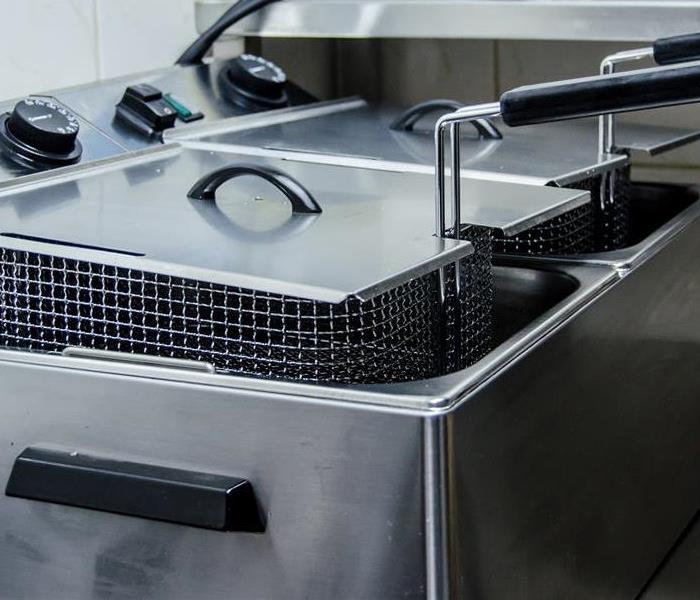How To Avoid Fires In Your Commercial Kitchen
10/1/2019 (Permalink)
If your commercial kitchen isn’t properly maintained, it can present a significant fire hazard. Your kitchen is a hectic environment that produces a lot of food quickly, with high temperatures and flames going all day and night. When you combine this environment with excess grease and oil you could very well find yourself facing a fire in your commercial kitchen.
Here are some tips that can help you avoid a fire in your commercial kitchen:
- Inspect and maintain electrical equipment on a regular basis. Inspections should include looking for hazards such as frayed cords or wiring that can spark and cause an electrical fire. It is also important to check for cracked or broken switch plates on outlets, as these can expose wires and collect dust and grease, leading to a short circuit and then a fire. Any cords running behind appliances should be moved to a place where they are more visible. If problems are identified, stop using the equipment or appliance until it can be repaired or replaced.
- Call a professional to repair damaged or malfunctioning appliances. With the built-in complexity of today’s commercial kitchen appliances, it is always a good idea to have them maintained and repaired by a trained professional. Never attempt to repair broken appliances and electrical equipment yourself.
- Keep your deep fat fryers away from open flame cooking equipment. According to one study, deep fryers are involved in one out of every five fires. It is important to keep your fryers at least 16 inches away from any source of open flame or to install a vertical divider that extends at least 8 inches above the top of the fryer. Either option will help to ensure that hot oil in the fryer won’t splash onto an open flame and ignite. All deep fat fryers should also be equipped with a high temperature-limiting device that will automatically shut off the fuel or power to the fryer if the oil exceeds 475 degrees Fahrenheit.
- Have your kitchen’s exhaust system regularly inspected and cleaned to prevent grease build-up. This is not only a best practice – it is required by fire safety codes. There are different inspections and cleaning schedules for exhaust systems – monthly, quarterly, semi-annually, or annually – based on the type of cooking operation you have.
When it comes to being prepared, our SERVPRO of Belle Meade/West Nashville team is ready to help you. We are fire and water damage experts!






 24/7 Emergency Service
24/7 Emergency Service
